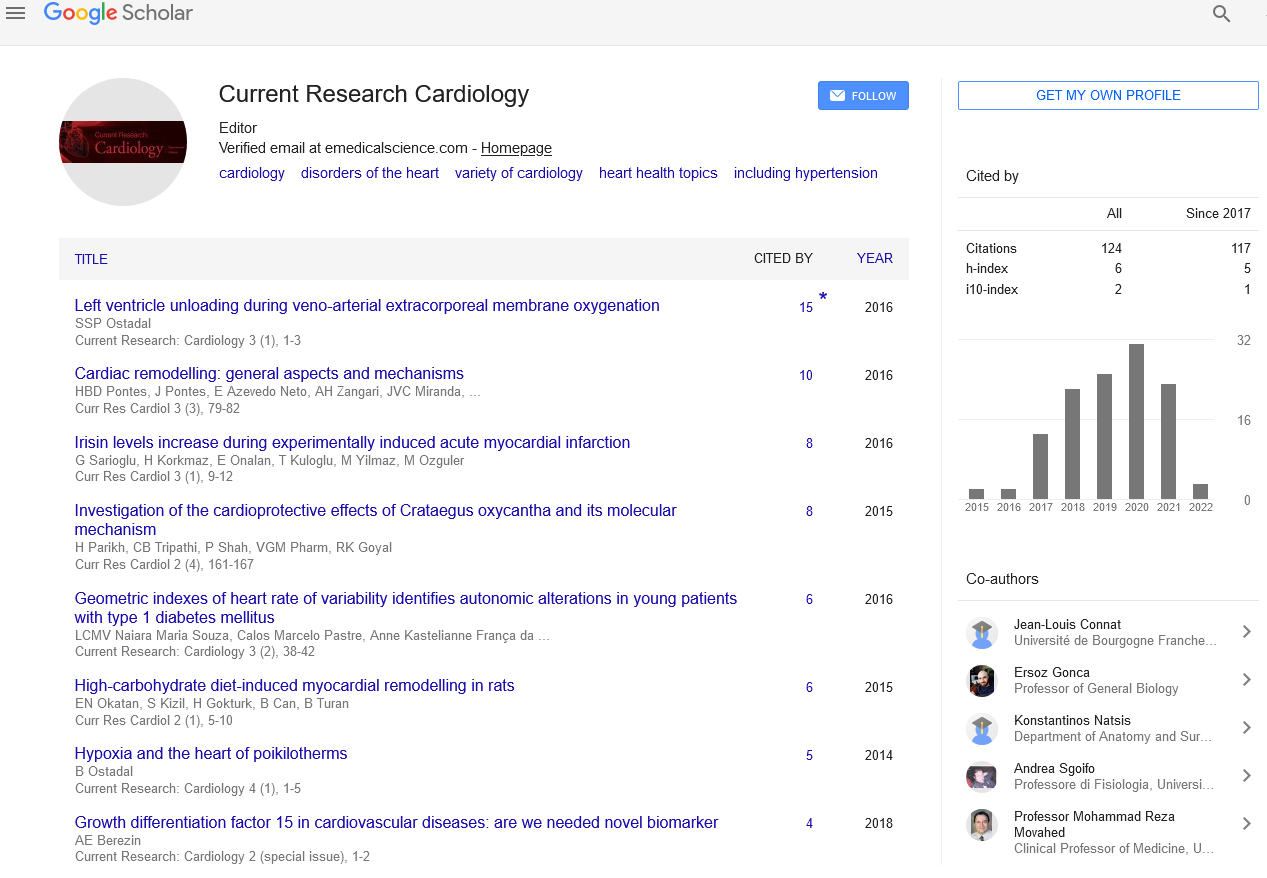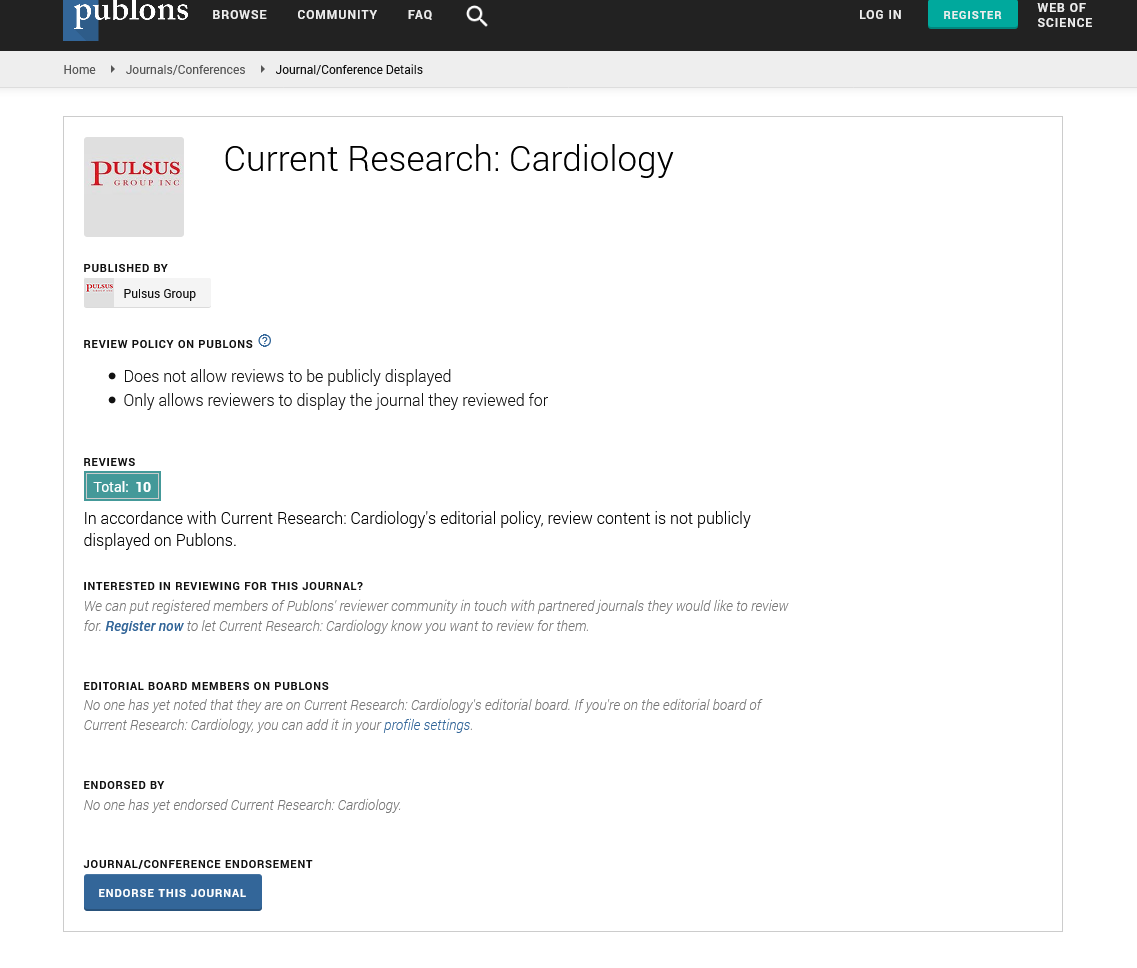
Sign up for email alert when new content gets added: Sign up
Mutations in exons 30 and 33 of the MYBPC3 gene and its effect on hypertrophic cardiomyopathy
2nd Global Heart Congress
November 21-22, 2018 Osaka, Japan
Saeed Soroush and Mehrnaz Ajorloo
Guilan University School of Medicine, Iran Beheshti University of Medical Sciences, Iran
Posters & Accepted Abstracts: Curr Res Cardiol
Abstract :
Cardiomyopathy is a different category of heart muscle diseases that the heart cannot supply adequate blood flow for general and specific circulation of other organs of the body in which case the patient gets an arrhythmia. This disease has several types including Hypertrophic Cardiomyopathy (HCM), Arrhythmogenic Right Ventricular Cardiomyopathy (ARVC), isolated noncompaction, mitochondrial cardiomyopathies, Acquired agents, secondary metabolic factors, inflammation, endocrine, poisoning and neuromuscular. This article mainly intended to explore new therapies by examining one of the genetic causes of this complication. The process of translating and expressing proteins exon and intron play a major role. Exons are nucleotide sequences that they are coded in the form of RNA and they have an important usage in the translation process for make essential proteins. In many genes existing exons have translatable areas that they lead to protein synthesis.one of effective genes in the process of completing the muscular process of the heart, considering the genetic cases that was said, is the MYBPC3 gene that mutations in exons 30 and 33 of this gene lead to a series of major changes in the development of myocardial heart muscles that its result is hypertrophic cardiomyopathy. Mutations in 23 Sarcomere genes or sarcomere-related proteins are related to HCM. Mainly changes in MYH7 and MYBPC3 genes that they are encoder of myosin heart binding protein C are the causes of more than 75% of all HCM clinical cases. This mutation in thin strand proteins such as troponin T, troponin I and tropomyosin include less than 10% of HCM cases. These observations indicate that created mutations cause changes in structure and performance of a mutated protein and common genetic variants in it and ultimately a genetic cardiomyopathy disorder.
Biography :
E-mail:
Saeed.Sorush55@yahoo.com




